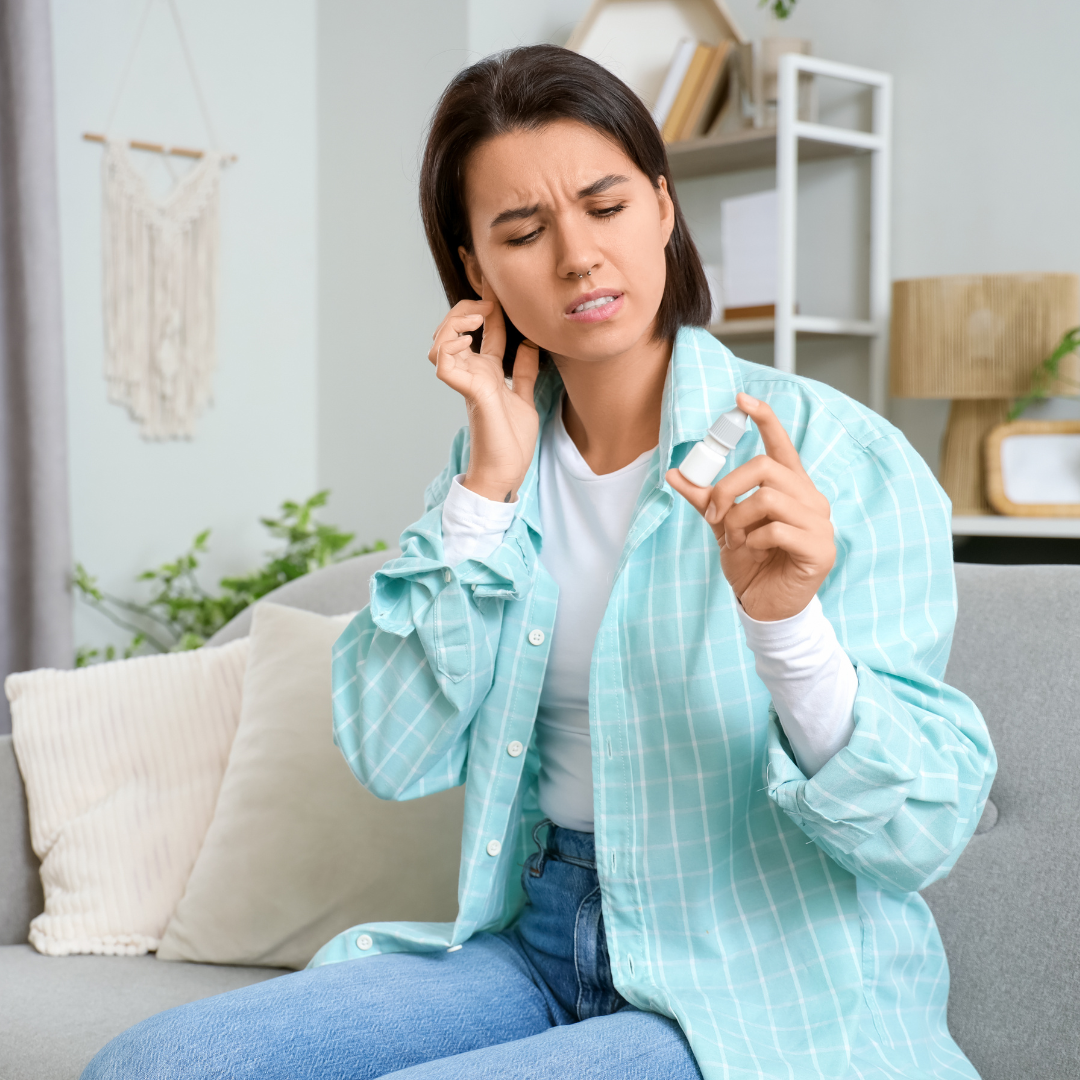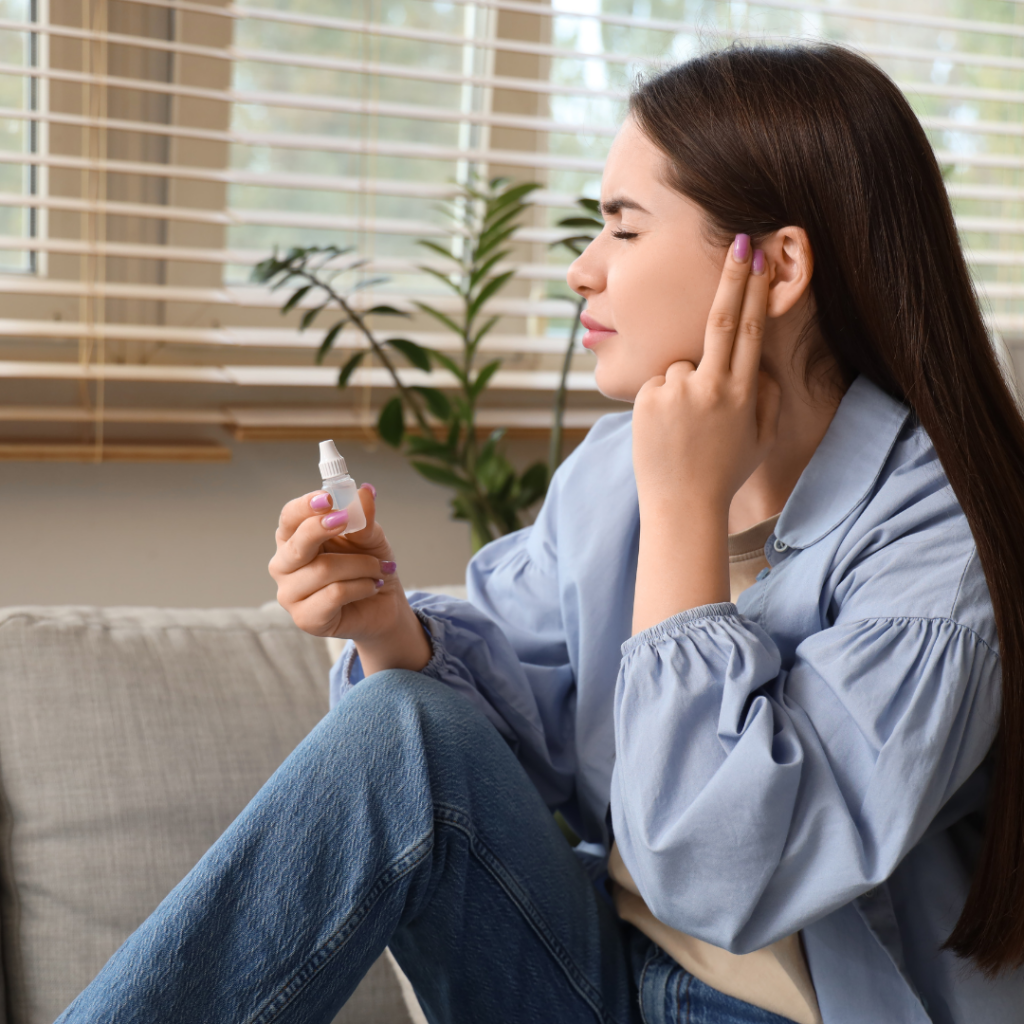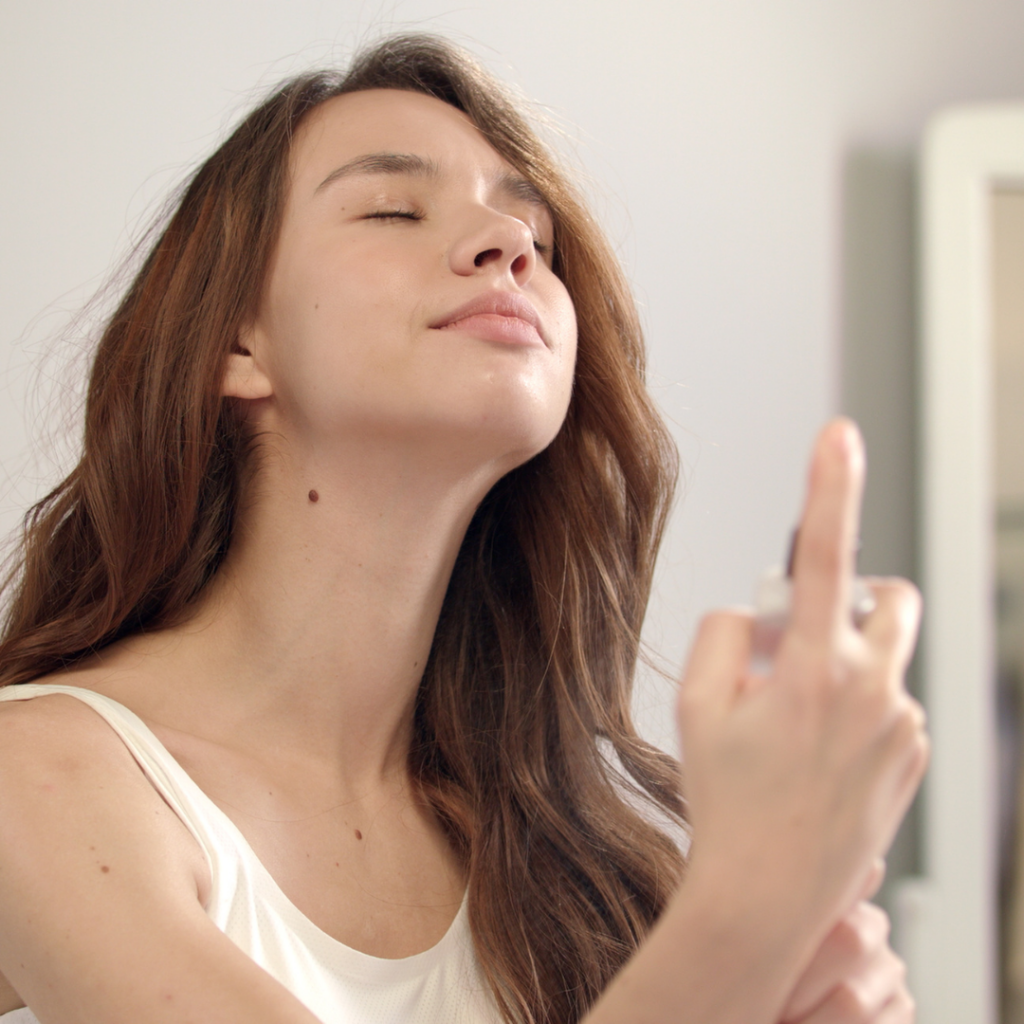
Itchy Ears In Menopause & Other Ear Related Problems
We all know about hot flashes, sleep disturbance, low libido and mood swings. But one of the lesser known symptoms is itchy ears in menopause.
When we’re going through perimenopause and menopause, it can be unsettling to see symptoms we didn’t expect.
That’s why this post will outline the weird impact perimenopause and menopause has on your ears.
Knowledge is power, after all.
So, let’s take a look at ear problems that crop up because of falling oestrogen levels.
Last Updated:
Does menopause really affect your ears?
Perimenopause and menopause does really affect your ears!
Ear-related problems are among the less talked about perimenopause and menopause symptoms. However, they absolutely can cause discomfort and pain.
Why does menopause cause ear problems?
It’s important to remember that everyone’s experience of perimenopause and menopause is different. It isn’t guaranteed that you’ll have any of the common symptoms. It’s a truly unique experience for everyone.
If you do experience itchy ears or other ear problems at this point of your life, it’s usually down to your falling oestrogen levels.
As your oestrogen levels decline, the mucus membranes in the inner ear might dry out. This dehydration can lead to a number of ear problems, including itchy ears in menopause.
You may also start to hear ringing in your ears, find it tricky to hear things clearly, have frequent earaches and/or have blocked or hot ears.
The most common ear problems in menopause
Now that we know that menopause can trigger ear problems due to declining oestrogen levels, let’s take a look at the most common ear problems.
1. Inner ear changes and itchy ears
Itchy ears in menopause is one of the more common ear-related complaints.
The hormonal fluctuations – specifically the falling levels of oestrogen – impacts our skin. Menopause skin is generally dehydrated and itchy, and this is no different when it comes to the skin inside your ears.
Dry and dehydrated skin is far more sensitive, making it far more susceptible to irritation.
When the skin inside the ears dry out and become dehydrated, the natural oils become lost. The result? Itchy ears.
And that itch is seriously tricky to scratch.
On top of this, the decline of oestrogen can impact how your body produces ear wax. Ear wax helps to keep the ear canal moisturised, so when there’s less ear wax, it can lead to a persistent itch.
Dizziness is also a byproduct of less ear wax which can – quite literally – throw you off balance.
What you can do
Ear drops can help with inner ear changes and itchy ears because they’ll rehydrate the canal and the skin surrounding it.
Avoid cotton earbuds! They will dry out your ears even more.

2. Ringing in your ears in menopause
Ringing in your ears is known as tinnitus.
This can be caused by a number of things and isn’t a menopause exclusive symptom.
If, for example, you’ve had a medical procedure on your jaw or dental work, it could cause ringing in your ears.
So, why does ringing in the ears happen in menopause?
It’s often down to high blood pressure, which can be a problem for many women in perimenopause and menopause.
Make sure you get your blood pressure checked if you can hear ringing in your ears.
Ringing in your ears could also be caused by consuming too much caffeine, salt and/or sugar. Nutrition is key for all menopause symptoms to balance hormones. Consider consuming hormone balancing foods.
Finally, tinnitus can be caused by poor circulation, which is another side effect of perimenopause and menopause.
What you can do
If you can hear ringing in your ears, make sure you discuss your symptoms with a healthcare professional so they can test for underlying causes and treat you accordingly.
3. Hearing loss in menopause
If you’re experiencing any hearing loss – whether you’re perimenopausal, menopausal or at any other stage of your life – you must speak with your GP.
Some women in perimenopause and menopause do say that their hearing has deteriorated. While you should – as mentioned before – see your doctor, sometimes this can be down to the mucus in your ears drying out.
On the contrary, some women actually experience the opposite, where their hearing gets extremely sensitive. While this may sound like a super-power, it can be overstimulating when you’re doing simple daily tasks like going shopping and being in a crowd.
What you can do
Whether you’re experiencing hearing loss or intensity, make sure you speak with a healthcare professional for the appropriate tests and treatment.
4. Painful earache and infections in menopause
When the inner ear becomes dehydrated and doesn’t produce enough ear wax, you may start to notice that you’re getting more and more ear infections.
In perimenopause and menopause, your weakened immune system can make you more prone to sinus infections, too. When your sinuses become blocked, your ears can become affected, too.
What you can do
If you are getting frequent ear aches or ear infections, you should see your GP. Before going to your appointment, make sure you track your symptoms with appropriate dates.
5. Blocked ears
Dehydration in your ear canal can cause so many issues, including blocked and itchy ears in menopause.
When the mucus dries out, your ears struggle to keep themselves clean and clear, which can lead to blocked ears.
This can also be brought on by diets that are high in fat.
What you can do
If you’re struggling with blocked ears, take a look at what you’re eating. Reduce your fat-intake and you’ll notice a difference.
6. Burning ears in menopause
Burning ears can lead to itchy ears in menopause. Both the burning and itching can be extremely uncomfortable symptoms to deal with.
Hot ears are often linked to hot flashes and night sweats. For many women, hot flashes begin in the chest and spread upwards, including the ears.
When hot flashes spread to the ears, it can cause pain, as your ears may start to throb.
What you can do
To help prevent hot flashes and night sweats, avoid caffeine, spicy foods and alcohol.
Keep a spray bottle of water nearby to cool you down when a hot flash takes hold.

7. Itchy ears in menopause
Itchy ears are among the most common ear related problems at this stage of life.
If you suffer from eczema, the chance of itchy ears in menopause is heightened due to the dehydration of your skin that occurs with falling oestrogen levels. You may find that the back of your ears are itchy, too.
What you can do
Take a look at some moisturisers suitable for eczema to help with itchy ears in menopause.
On top of this, make sure you’re drinking plenty of water to keep your skin as hydrated as possible.
Itchy ears in menopause and other ear-related problems – in a nutshell
Most women are surprised to find they are experiencing problems with their ears in perimenopause and menopause. There’s very little attention on what happens to the ears at this point of life, which can cause panic when symptoms start to show.
Whether your ears are burning, your hearing has been affected, you can hear ringing or you’re experiencing itchy ears in menopause, it’s always safer to speak with your GP. You should never risk it when it comes to your hearing.
Have you had any ear-related issues in perimenopause or menopause? Let me know in the comments below.
Leave a Reply
- free ebook alert -
WHAT TO EXPECT WHEN YOU’RE
going through the menopause
Demystify your understanding of what’s happening to you. Arm yourself with solid, game-changing information to support you through this challenging phase of your life.
grab your copy now →
WHAT TO EXPECT WHEN YOU’RE
going through the menopause
I am experiencing sore inner ears which feels like a constant earache. The GP has examined them, advising there was no sign of infection etc. I’m at a loss at what to do.
Ah, Betty – I’m so sorry to hear this. Do you think that this could be menopause related? Perhaps it’s worth going back to the GP and explaining that you’re still suffering. Nothing worse than earache!